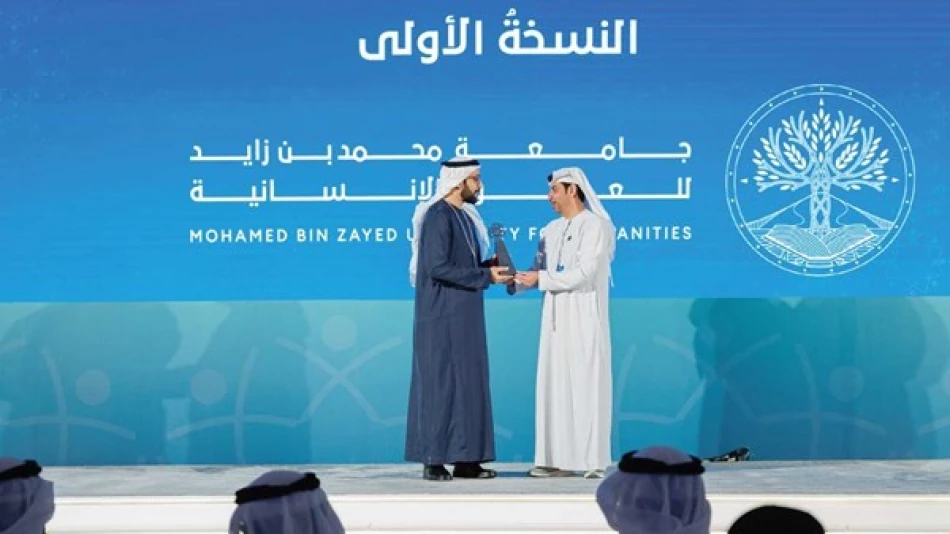
Mohammed bin Zayed University of Humanities Wins Global Trends Award for Countering Extremist Ideology
UAE University Wins Global Award for Combating Extremism Through Academic Innovation
Mohammed bin Zayed University for Humanities has been recognized with the prestigious "Trends Global Award for Combating Extremist Thought" at Abu Dhabi's Fifth Annual Political Islam Forum, highlighting the UAE's systematic approach to countering radicalization through higher education and intellectual immunity programs.
Academic Programs Target Ideological Resilience
The award from the Trends Research and Advisory Center acknowledges the university's comprehensive strategy since its establishment to develop specialized academic programs that promote tolerance and openness. The institution has pioneered degree programs specifically designed to counter extremist narratives, including a Bachelor's in Social Studies focusing on Tolerance and Peace, and master's programs in Religious Studies, Tolerance and Coexistence, and Dismantling Extremist Discourse.
This educational approach represents a notable shift from traditional counter-terrorism methods that focus primarily on security measures. Instead, the university emphasizes intellectual immunity – building cognitive defenses against radical ideologies before they take root.
Training Religious Leaders as Frontline Defense
Beyond formal degree programs, the university operates training initiatives for imams and religious preachers through its Center for Continuing Education. This strategy recognizes that religious leaders often serve as the first line of defense against extremist recruitment, particularly in communities where traditional authority figures hold significant influence.
The institution also hosts local and international conferences addressing intellectual security issues, positioning itself as a regional hub for counter-extremism research and policy development.
UAE's Broader Counter-Extremism Strategy
This recognition reflects the UAE's wider national strategy to combat extremism through soft power and educational reform rather than solely through security apparatus. The approach mirrors successful models in Singapore and parts of Europe, where governments have invested heavily in counter-narrative programs and community-based prevention initiatives.
Dr. Khalifa Mubarak Al Dhaheri, the university's director, emphasized that the award reflects the leadership's vision of building generations capable of protecting society from extremist thought while promoting authentic Islamic values based on mercy, tolerance, coexistence, and peace among peoples and cultures.
Regional Implications for Counter-Extremism Policy
The UAE's investment in academic counter-extremism programs comes as regional governments increasingly recognize that military solutions alone cannot address the ideological roots of radicalization. Countries across the Middle East and North Africa have struggled with post-Arab Spring extremist movements, making intellectual and educational approaches increasingly attractive to policymakers.
This academic model could serve as a template for other Gulf states and regional partners seeking to develop indigenous counter-extremism capabilities. The focus on Islamic scholarship and authentic religious interpretation also provides a culturally appropriate framework that may prove more effective than Western-developed programs in similar contexts.
The university's success suggests that systematic investment in counter-narrative education, combined with training for religious authorities, may offer a sustainable long-term approach to preventing radicalization in Muslim-majority societies.
Most Viewed News

 Layla Al Mansoori
Layla Al Mansoori






